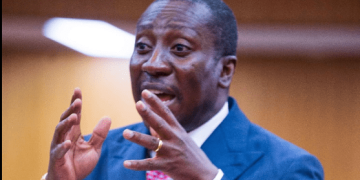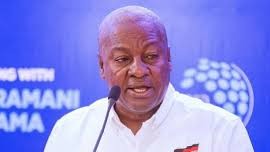Bright Simons, Vice President of IMANI Africa, says President John Dramani Mahama’s reduction of ministries from 30 to 23 is more about public sentiment than genuine government reform.
According to Simons in an article titled “The stressful difference between cutting ministries & cutting costs in Ghana,” the clustering of subsectors to create ministries has always been a matter of opinion, with each government having its own approach.
For instance, the Kufuor government in the 2000s combined “youth and sports” with “education,” while the Mills government disagreed and instead paired “works and housing” with “water resources.”
Simons argues that the current administration’s decision to cut down the number of ministries is primarily driven by the public’s dislike for a large number of ministers, which is perceived as “obscene.”
He believes that this move is more about being responsive to public sentiment rather than achieving lean and efficient government reforms.
He further questions the effectiveness of such a reduction in achieving true government efficiency.
Simons points out that the real issue lies with the thousands of workers in collapsed ministries who are likely to be redistributed rather than removed from the government payroll.
He emphasises that ministries are just the tip of the iceberg, with agencies like the Police, Ghana Educational Service, and Ghana Revenue Authority being far more significant in terms of public workers and government business.
Simons also highlights the importance of state-owned enterprises like GNPC and ECG in spending efficiency, suggesting that these entities matter more than 60% of the ministries.
He notes that while being a “listening government” has its rewards, it is not synonymous with achieving efficiency gains.



















































































